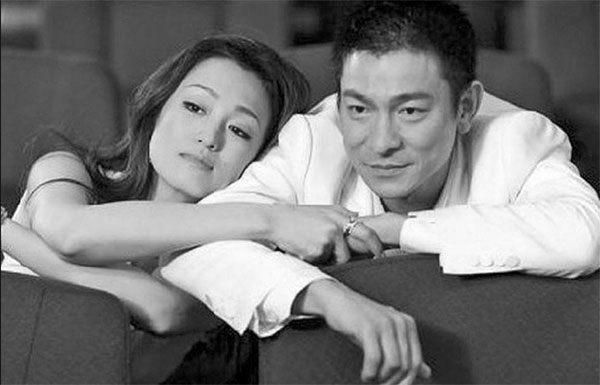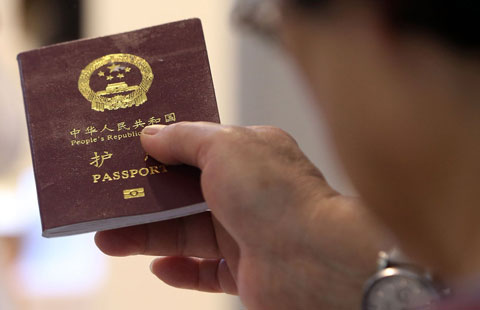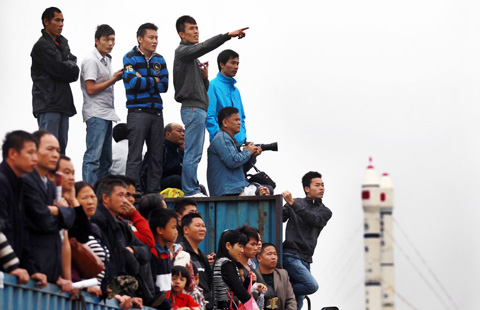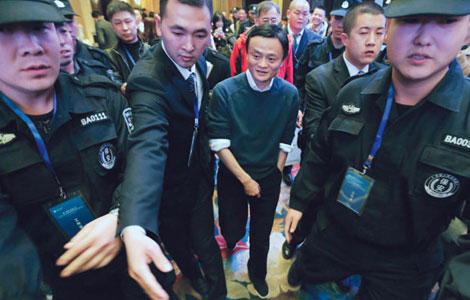A touch of Seoul in Chinese films
Updated: 2014-12-11 15:45
By Han Bingbin(China Daily USA)
|
||||||||
South Korean coproductions are set to take the box office this festival season. Han Bingbin reports.
Love stories set in urban China have become a popular genre in modern Chinese movies. Over the past five years, other than the country's changing box-office scenario, the genre also owes its success to South Korean moviemakers.
This year's hesui dang, the period marked by festivities surrounding Christmas, New Year and the Spring Festival, will determine how at least three joint productions by Chinese and South Korean directors perform at the box office. Hesui dang is the annual golden period for movies to make money.
|
Joint productions by Chinese and South Korean filmmakers, such as A Wedding Invitation (above left), Miss Granny (above right) and What Women Want (below), are a win-win for the movie markets in both countries. Photos Provided to China Daily |

Bad Sister, a romantic comedy directed by Kim Tae-gyun, is about a Chinese astrologer's efforts to stop his brother's marriage to a South Korean girl. It premiered on the mainland in late November.
Coming up during Christmas is a South Korean-style romantic comedy, Meet Miss Anxiety, directed by Gwak Jae-yong, the director of the phenomenally popular My Sassy Girl (2001). Chinese A-list actress Zhou Xun also stars in Meet Miss Anxiety.
Then there's Miss Granny, a fantasy romance produced by South Korean conglomerate CJ Entertainment & Media, for the Chinese New Year. Directed by Leste Chen from Taiwan with an all-Chinese cast, it is the Chinese version of a namesake South Korean production released earlier this year.
"Romantic comedies target mainly female audiences. They care very much about the effects and costume, the fashion stuff. Those are what South Korean filmmakers are very good at," says Lee Hong-dae, manager of film business department at CJ E&M China.
"We try to provide with our resources what the Chinese market is short of. Thus we can achieve a win-win situation," he adds.
As one of the earliest South Korean movie companies to enter the Chinese market, CJ E&M has participated in producing a few Chinese films, including Sophie's Revenge (2009), its first joint production in China, starring Zhang Ziyi and Fan Bingbing, and What Women Want (2011), starring Gong Li and Andy Lau.
Though they pitched in with some thoughts for the scripts of both productions, says Lee, they mainly served as partial investors.
Last year, A Wedding Invitation marked the first attempt by CJ E&M to control the production of a Chinese film "from beginning to end", managing all aspects of moviemaking from writing to marketing.
"When I showed the film to a Chinese distribution company before post-production started, they thought it was a purely Chinese film yet of an exceptional quality. That's when I felt rather proud of our South Korean production team," says Lee.
The romantic film earned nearly 200 million yuan ($32 million) on the mainland, making it arguably the highest-grossing Chinese-South Korean production and a source of confidence for CJ E&M to carry on with its future plans that include at least four new films next year.
The movie collaboration between China and South Korea goes back at least 15 years. In 2000, China Film Co-production Corp and Taewon Entertainment produced the martial-arts movie Bichunmoo. Similar movies were subsequently made but none was very influential at the Chinese box office.
A new cooperative model was then developed: Chinese investment and South Korean technical expertise, with Chinese director Feng Xiaogang as a case in point. He used a South Korean post-production and visual effects team for his war epic The Assembly (2007) and disaster movie After Shock (2010).
Fan Xiaoqing, a professor of cinema at the Communication University of China and an adviser to the Busan International Film Festival, calls this an ideal mode of coproduction.
"To better attract the Chinese audience, the lead scriptwriter should be Chinese," she says, while referring to the failure of last year's joint venture Mr Go, in which a baseball-playing gorilla plays the main role. The moviemakers overlooked the fact that baseball isn't a popular sport in China.
That' why even though Miss Granny is based on a ready script, CJ E&M still invited local writers to build on the original story by adding in details that cater to local audiences, according to Lee.
"But South Korean writers could be included because of their storytelling skills," Fan says.
Lee agrees that currently the South Korean movie industry is still ahead of China's in terms of scriptwriting, thanks in part to the South Korean audiences' changing taste in movies. In the past decade, the audiences there have moved on from movies that sold on star power alone to films that make a compelling storyline the attraction.
The growth of young South Korean scriptwriters is also being encouraged in that country.
A society of well-trained scriptwriters is part of the reason why South Korea today has Asia's most diverse movie market, with genres ranging from sci-fi to horror to art-house features.
In July, China's State Administration of Press, Publication, Radio, Film and Television, and the South Korean Ministry of Culture, Sports and Tourism, signed a film coproduction agreement to promote closer bilateral ties.
Contact the writer at hanbingbin@chinadaily.com.cn
Wang Kaihao contributed to the story.
(China Daily USA 12/11/2014 page8)

 Chinese passport opens more doors in 2014
Chinese passport opens more doors in 2014
 China faces: Glimpses of life and love
China faces: Glimpses of life and love
 Top 10 favorite gift brands of rich Chinese women
Top 10 favorite gift brands of rich Chinese women
 In photos: Group watching
In photos: Group watching
 Pictures of the year: Fashion
Pictures of the year: Fashion
 Across Canada Dec 10
Across Canada Dec 10
 Jack Ma in running for Time magazine Person of Year
Jack Ma in running for Time magazine Person of Year
 China: New climate change fund 'market-based'
China: New climate change fund 'market-based'
Most Viewed
Editor's Picks

|

|

|

|

|

|
Today's Top News
Xi chosen as 'Person of the Year' in Russia
Hypersonic tests target no specific country
Vermont, California, NYC tap into EB-5 program for money
Massacre survivors, relatives urge Japan to reflect in letter to UN
Facebook may need a partner to get into China
BOC adds to China's portfolio of NY property
Watchdog goes online to fight graft
China Construction Bank Toronto Branch Grand Opening Ceremony
US Weekly

|

|








